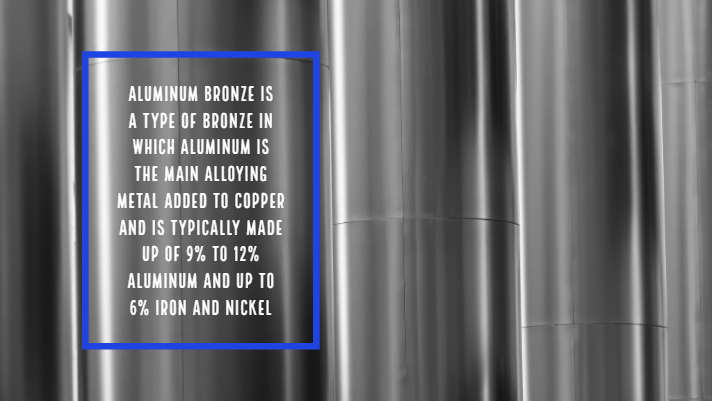Alloys are metallic compounds composed of one metal and one or more additional metal (or non-metal) elements. There are all kinds of specialized alloys that are essential for various industrial projects across the globe. Aluminum bronze is a type of bronze in which aluminum is the main alloying metal added to copper and is typically made up of 9% to 12% aluminum and up to 6% iron and nickel.
Aluminum bronze welding can take place using the MIG welding technique with an aluminum bronze core and pure argon gas. There are so many ways to use this versatile alloy and aluminum bronze welding is an essential aspect of the alloying process.
Hopefully, this guide will help you better understand everything from aluminum bronze casting and examples of alloys to the various aluminum bronze properties. Here are some frequently asked questions pertaining to metal alloys and aluminum bronze welding:
Aluminum bronze welding can take place using the MIG welding technique with an aluminum bronze core and pure argon gas. There are so many ways to use this versatile alloy and aluminum bronze welding is an essential aspect of the alloying process.
Hopefully, this guide will help you better understand everything from aluminum bronze casting and examples of alloys to the various aluminum bronze properties. Here are some frequently asked questions pertaining to metal alloys and aluminum bronze welding:
- How strong is aluminum bronze? — The tensile strength of aluminum bronze alloys varies. As a permanent mold cast, it is 82 KSI or 565 MPa for alloys containing 89% Copper, 1% Iron, and 10% Aluminum. Bronze itself is an alloy made primarily of copper and tin and is stronger and harder than any other common metal alloy (with the exception of stainless steel).
- What is aluminum bronze used for? — C95400 Aluminum Bronze is the most common alloy in the cast aluminum bronze family. This versatile alloy is used in many heavy-duty applications because of its durability and is recommended for high load and high wear applications that require high tensile strength, weldability, and exceptional resistance to fatigue in overload situations.
- Can you put galvanized and aluminum together? — Under atmospheric conditions of moderate humidity, contact between galvanized surfaces and aluminum is unlikely to cause any substantial corrosion. It’s important to note, however, under extremely humid conditions, the galvanized surface may require electrical isolation from the aluminum.
Many of these metal types of alloys are specialized and often very difficult to find without professional assistance. If you want to purchase metal from a competent supplier, give Diversified Metals a call right away.

